
With Yr Wyddfa (Snowdon) on their patch, a mountain ascended by over half a million people annually, it's no surprise that the Llanberis Mountain Rescue Team are the most active in the UK. The team recently announced an eye-opening benchmark, recording their 300th rescue of the year.
Over the last 15 years the annual number of callouts here has increased 300% - an unsustainable growth rate for a small charity run entirely by volunteers, say the team.
A hill walker injured in a fall on a wintry PYG Track prompted the landmark 300th response for 2023, followed two days later by the 301st call-out, to assist a pair of walkers who had become stuck in full winter conditions near the top of Snowdon.
The increase in workload is placing huge pressure on the team's volunteers. With incidents frequently occurring during busy holiday periods, team members are increasingly being asked to attend several callouts in a day, leading to fatigue and the risk of burn-out.
Llanberis Mountain Rescue Team Chair, Dr Richard Griffiths said: "We are hugely lucky that our volunteers are willing to go out at any time of day to rescue fellow walkers, climbers, runners and mountain bikers whose day has gone wrong.
"Our average member attends around 40 callouts per year. The time impact on them and their families' lives cannot be understated.
"This has been our busiest year yet, and as we get busier and busier there is a very real risk that the service becomes overloaded and we are not able to respond to those in need quickly."
As well as a rise in overall call-outs, the team have been seen an increase in traumatic, complex and dangerous incidents, impacting volunteers' wellbeing and personal lives.
"Our 56 operational team members have done over 8000 hours of rescue work so far in 2023" said Dr Griffiths.
"On top of this we have to attend regular team training, maintain equipment, raise the funds needed to run a charity and many other non-rescue roles too numerous to mention.
"As a group of volunteers we are nearing the limit of what we can do to support those in need in the mountains.
"In the coming years we will be looking to continue our work with other stakeholders to reduce the number of mountain incidents on Yr Wyddfa and to build our capacity to respond to this increasing demand. In the meantime, we continue to encourage walkers and climbers to prepare adequately so that they enjoy their time in the mountains by following the key messages from Adventure Smart UK."



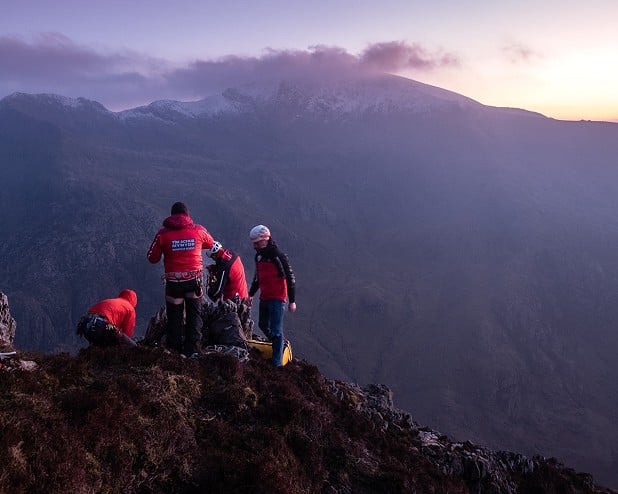
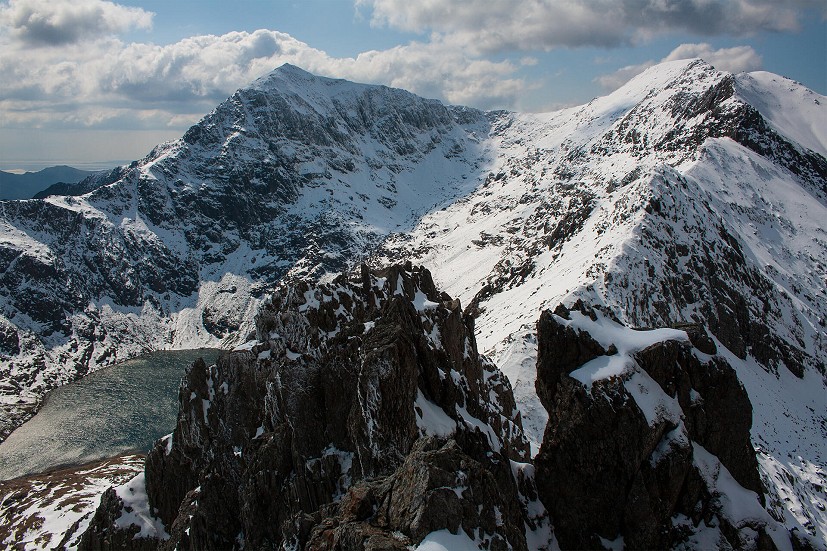



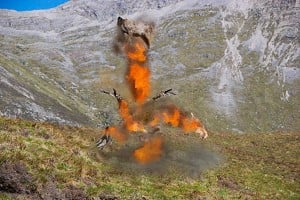
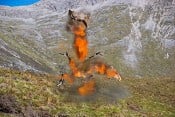
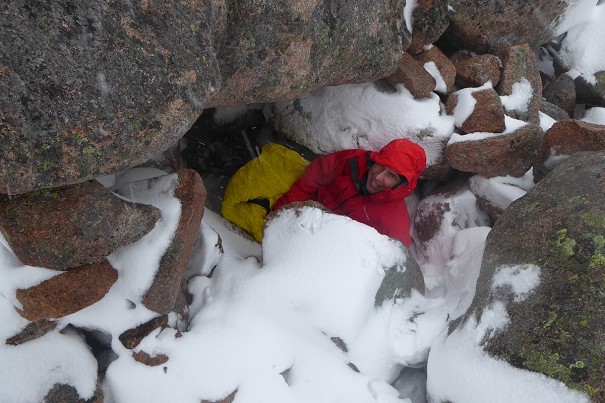
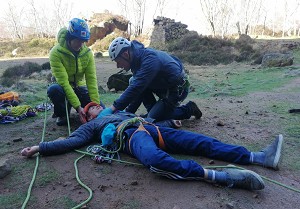
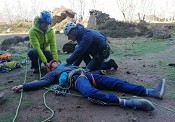
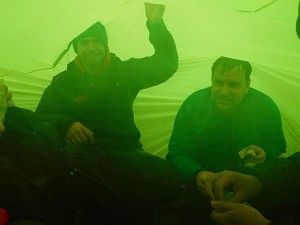
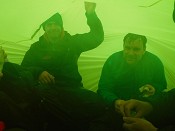
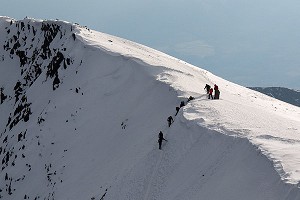
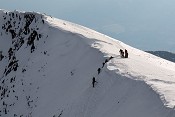
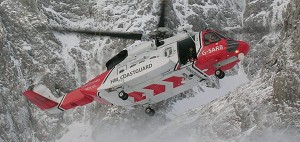

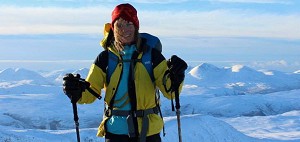

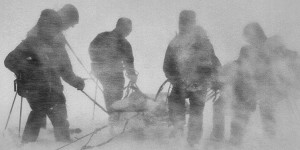

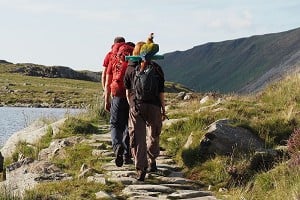
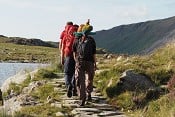
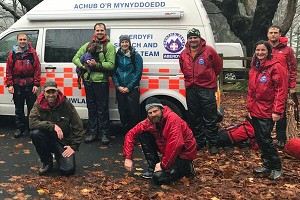
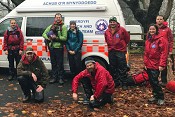
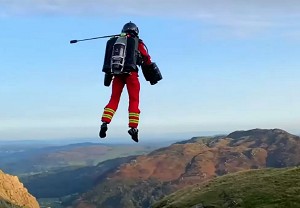
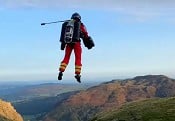
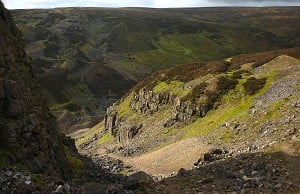

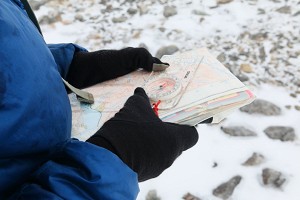
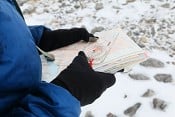




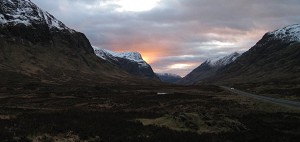

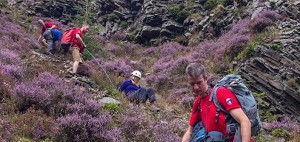

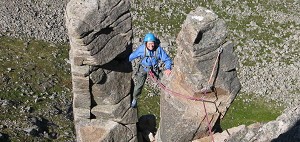

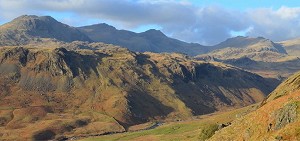

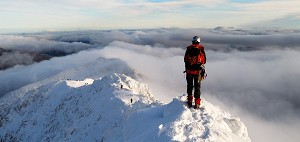

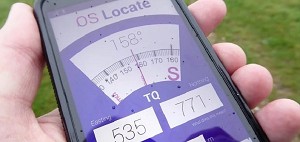

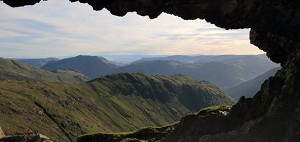

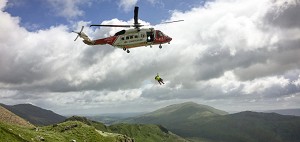



Comments
Well done and thanks to all involved.
These sorts of crazy numbers and the continuing upwards trends do though I think, have to reignite the debate about how mountain rescue is organised and paid for. I live in Germany and volunteer with the local team. We cover a big cross-country skiing area with a couple of drag-lifts so in the winter we have people ready to go in the middle of the ski area all weekend. At other times we're pretty quiet because the terrain isn't really that remote/mountainous. We also support the local fire department's technical/industrial rescue team which I really enjoy, but again there's not that many calls. I couldn't imagine putting in the hours of training which are necessary and then doing 40-50 calls a year. I'm self employed and frequently work on weekends, if I cancel an appointment with a client then I'm not paid. If I can plan to be on duty when I'm not working then it's OK, but how do you guys all manage? Jobs where you can work late and catch up?
If we have to transport an injured patient then a bill gets sent to their health insurance company. Uninjured, lost, etc. should receive a bill directly, but this is often waved (unless they're being proper stupid - people trying to drive the cross-country pistes in their SUVs for example). This covers the cost of equipment, fuel etc. but we volunteers don't see any of it. This is where things get sticky in my eyes. Our area is pretty quiet, but there are little local ski lifts operating. Further south there are bigger skiing areas where it can cost €50+ a day for a lift ticket, I really don't think it's fair for them to be earning money and relying on volunteers to get them out of the shit when somebody is injured or when a lift breaks and a load of people are stranded. If I'm out on duty, patrolling, rescuing etc. for 8 hours then I see it as a job in my eyes. At other times, given that we support the volunteer fire department then I think we should be on a similar pay to them (it's tiny, but I think it shows some respect to what we do). If there's a shout and 6 people attend, 4 of whom are paid and 2 not I don't think it's fair.
So how about Llanberis, Ben Nevis and other heavily frequented areas? Wales especially has a lot of bike parks now, what extra work do they generate? How far off are you having to have teams sat in the rescue HQ ready to go at a moment's notice all weekend? And then if you do get to that point do you think those people should be compensated for their day?
I'm in a busy team in Wales with a number of 'honeypot' areas. Between them they account for the majority of our callouts which are in triple figures but nowhere near Llanberis; we sometimes have 2 or 3 callouts on a busy day in the summer, but at other times of year we can be quite quiet. We've no need to sit in our Base waiting to head out and can get a pretty quick response most days, even on 'working' days, and can call on neighbouring teams for help if necessary (which is reciprocated). If you read Roger Webb's great article on how to be found alive after an accident in the mountains, you'll know that you may be waiting several hours, even if MR is informed very swiftly. (Incidentally, I can tell you from my own accident that the best thing is to have your accident immediately in front of an MRT out training so they're with you in 90 seconds)
I view myself as a volunteer, I didn't sign up for the pay (even the overtime ;-) ), and don't want to be compensated for something I do because I enjoy it (I get a lot of valuable training, I get to spend a lot of time outdoors in shitty conditions, and I get to do stuff that other people wouldn't get to do unless they were seriously hurt or paying for it!)
But... tomorrow I'm taking a day's leave to go fundraising in Cardiff city centre for the Search and Rescue Dog Association, South Wales (if you're in the area, we'll be in St David's 2 - come along and say hello). This fundraising pays for training events and kit, without which we wouldn't be able to function. I don't want us to become a government agency, but I'd rather we weren't so reliant on public donations which we have to bring in ourselves. Having a bit more funding would make a big difference.
I'm in a team in a less busy area which gets about 50 callouts a year. There is a bikepark on our patch and there has been an increase in incidents due to this - however, on the flipside they provide employment for several team members and an occasional training venue.
For us, as with other teams, the callouts aren't evenly spread across the year. Bank holiday weekends in the summer are almost guaranteed to generate a shout (or two, or three) whereas during the autumn and winter we're generally quite quiet.
Even though we're less busy than some of our neighbouring teams it does seem that callouts are increasing and there's conversations going on about how we can increase our fundraising to manage this. The issue for us isn't so much volunteered time, its getting the funds together for ongoing operational costs and growing the capabilities of the team.
One of the issues that is probably inherent in voluntary organisations like MRTs is that many of the people who have the time to spend organising, attending training and responding to callouts are retired. Its difficult for younger people, with jobs and sometimes young families, to put the same amount of time in. Any team needs a range of different people - older experienced heads to give sound advice and young fit people to charge up the hill carrying heaps of gear. The cost of living crisis has been biting round here and it means that the younger demographic of potential team members are working more, have less free time and have less disposable income to spend on kit like boots and trousers and walking poles etc etc etc that gets thrashed and trashed on callouts.
I wouldn't ever want to see people in the UK being charged for rescue as a matter of principle and also practicality. If someone needs help we want them to call earlier rather than later, so we can mobilise faster and so the situation doesn't deteriorate. I don't want people to feel like they can't call for help because they don't have insurance. Its also a point of pride for me that mountain rescue in the UK is a mutual aid organisation - we go out to help other people in the mountains because we can and we want to, not because its our job. I think something special would be lost if we were to professionalise. Of course, the cost to the state would be enormous if such a thing was to happen - imagine paying all of the hours that people volunteer, even at minimum wage.
Thanks for the thoughtful responses. I have heard of bike parks starting to hire their own first-aid teams. Has there ever been any pressure from local MR teams to do this, due to the demands being placed upon the volunteers?
In reply to pancakeandchips:
Of course, the cost to the state would be enormous if such a thing was to happen - imagine paying all of the hours that people volunteer, even at minimum wage.
As I said, I compare our team to the fire fighters because we train with them 2-3 times a month. I think they get something like €2500 per year, you’re not going to live off it but it’ll pay the petrol. A quick google shows that there’s some interesting payment for availability models in the uk fire service. I could see that working here because you’re still free to go on holiday etc, but get rewarded if you are available. Our model is very different to the uk though, that’s why I was asking the questions. Looking on our alarm app we currently have 11 people available. A full crew on a rescue is 5, so very different. Even with a UK call-out team of 20 people it’d still be cheaper than sending 1 asylum seeker to Rwanda!
From my point of view bike parks are great for keeping current on the casualty care (first aid) side of things, helps keeps up to scratch on trauma, which means we are really slick when get to people outside of that environment. Over the last couple of years our local bike park has invested heavily in medics, and they are all really good (because they see lots of it) so we only really now go to the more serious incidents.